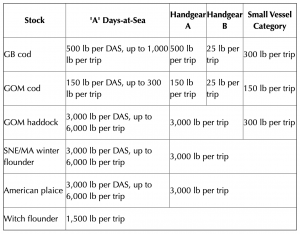August 15, 2022 — In the 1980s, Rich Hittinger’s favorite rite of early spring was chasing winter flounder. On many March days, he anchored his six-meter boat, Ermala—named for his three children, Eric, Mark, and Lauren—in a sheltered cove in Narragansett Bay, the estuary off Rhode Island’s southeastern coast. He and the kids chummed the water with rabbit feed and lowered hooks baited with clam worms, then ducked into the boat’s cabin to warm their bellies with hot chocolate. “They’d put the rod in the holder, and by the time they’d come back, they’d have a fish on the other end,” says Hittinger, who is the vice president of the Rhode Island Saltwater Anglers Association. “They’d catch flounder one after the other.”
Fishermen around Rhode Island shared Hittinger’s passion. Winter flounder, so named because they spawn from December to April, were a valuable commercial species and a dinnertime staple; anglers said that Narragansett Bay was practically paved with the mottled flatfish. In the late 1980s, though, the species began to buckle beneath the weight of overfishing. Managers took the logical step of restricting harvest, but winter flounder never recovered. As of 2019, the southern New England population hovers at just 30 percent of government targets, and catches in Narragansett Bay are a measly one one-100th of their historical apex. “There’s so few of them that recreational fishing is basically closed,” Hittinger says.
For years, winter flounder’s stagnancy was something of a mystery. Today, however, a growing body of evidence implicates a familiar culprit: climate change. Coastal ecosystems along the New England seaboard have been upended by rising ocean temperatures, few more so than Narragansett Bay, where waters have warmed by 1.2 degrees Celsius over the past century. This is a troubling realization, because the climate crisis, unlike overfishing, isn’t something that fisheries managers can rectify. It also forces us to confront a series of disturbing questions: What if winter flounder and other climate-stressed fisheries never bounce back? Do we keep trying to rebuild them, even if conditions make their recovery unlikely? Or do we lower our expectations—and perhaps even give up altogether?
“It’s not that we can’t get more winter flounder; it’s that we can’t get 1980 levels of winter flounder,” says Joe Langan, a fisheries oceanographer who conducted his doctoral research on winter flounder at the University of Rhode Island. “The climate of the 1970s is not our current climate. The rules of the game have changed.”

